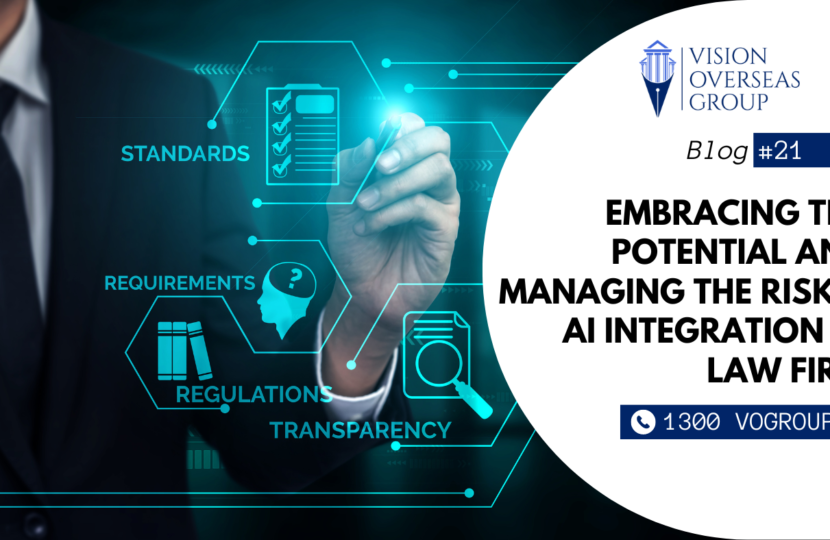Artificial Intelligence (AI) has emerged as a transformative technology across various industries, and the legal sector is no exception. Law firms are increasingly exploring the integration of AI to streamline processes, improve efficiency, and enhance client services. While there is immense potential, it is crucial for law firms to recognize the evolving nature of AI technology and the associated risks. In this blog post, we will delve into the integration of AI in law firms, its impact on legal professionals, and the importance of effectively managing these advancements.
The Potential of AI in Law Firms:
AI technology offers several benefits that can revolutionize the legal industry. From automating repetitive tasks to conducting efficient legal research, AI has the potential to enhance the overall productivity and accuracy of legal professionals. Here are a few key areas where AI can make a significant impact:
1. Legal Research and Case Analysis: AI-powered algorithms can analyze vast amounts of legal data and provide relevant insights, helping lawyers streamline the research process, identify precedents, and strengthen their arguments.
2. Contract Analysis and Due Diligence: AI-based contract analysis tools can review and extract important information from contracts, saving valuable time and reducing the risk of oversight or errors during due diligence processes.
3. Document Automation: AI systems can generate legal documents, such as contracts or legal agreements, based on predefined templates, reducing the time and effort required for manual drafting.
4. Predictive Analytics: By analyzing historical data and patterns, AI algorithms can provide valuable insights into potential case outcomes or legal strategies, empowering lawyers to make informed decisions.
Impact on Legal Professionals:
While AI integration holds great promise, it also raises concerns among legal professionals about the potential impact on their roles and job security. It is essential to recognize that AI technology is designed to augment, not replace, human expertise.
Here’s how AI can positively impact legal professionals:
1. Enhanced Efficiency: AI can automate repetitive tasks, freeing up lawyers’ time to focus on complex legal analysis, strategy development, and client interaction, thereby increasing overall efficiency.
2. Improved Accuracy: AI systems can process vast amounts of data quickly and accurately, reducing the chances of human error and ensuring a higher level of precision in legal research and analysis.
3. Cost Savings: AI integration can lead to cost savings for law firms by streamlining processes, reducing the need for manual labor, and enabling faster turnaround times.
Managing the Risks:
As with any transformative technology, AI integration in law firms requires careful consideration of potential risks and the implementation of appropriate safeguards. Here are a few key areas to focus on when managing the risks associated with AI integration:
1. Ethical Considerations: Law firms must ensure that AI systems are developed and implemented ethically, respecting privacy, data protection, and maintaining compliance with legal and professional regulations.
2. Transparency and Explainability: It is important to understand the decision-making process of AI systems and ensure transparency, particularly in areas where legal judgments or client advice are involved. Lawyers must be able to explain the reasoning behind AI-generated recommendations or predictions.
3. Data Security and Confidentiality: Law firms need to establish robust data security measures to protect sensitive client information and guard against potential cybersecurity threats associated with AI systems.
4. Continuous Learning and Training: Legal professionals should engage in ongoing learning and training to stay updated on AI advancements and understand how to effectively integrate AI tools into their practice. This will help them adapt to changing technological landscapes and leverage AI’s potential while minimizing risks.
Conclusion:
The integration of AI in law firms presents exciting opportunities to enhance efficiency, improve accuracy, and deliver better client services. However, it is crucial for law firms to approach AI integration with a comprehensive understanding of its potential and associated risks

